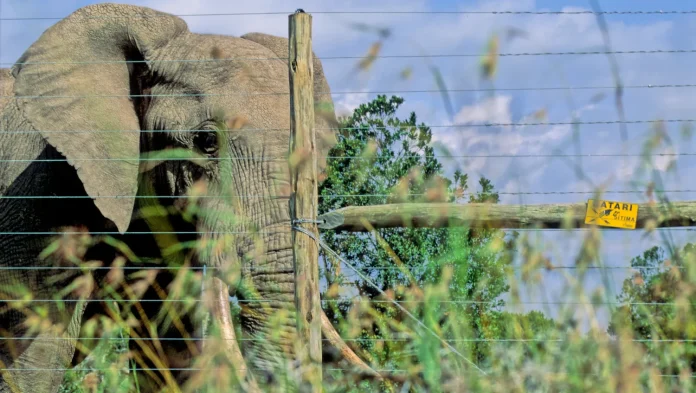Five members of the Maasai community from the former Eselenkey Group Ranch have filed a lawsuit against private developers, accusing them of violating gazetted land use plans and threatening the ecological integrity of the Amboseli ecosystem.
The petition, lodged in court this week, challenges widespread land conversion practices that have disrupted wildlife migration routes and pastoral livelihoods in Kajiado County.
The legal action comes amid intensified crackdowns by the National Environment Management Authority (NEMA) and the Kajiado County government, which have demolished illegal fences, arrested farm owners, and issued stop-work orders on developments deemed unlawful. County officials say the enforcement operations are backed by the Departments of Lands and Environment in collaboration with NEMA.
Community leaders allege that investors have fenced off wildlife corridors, cleared vegetation, drilled boreholes, and constructed permanent buildings on land zoned strictly for livestock and wildlife. “These developments violated gazetted land use plans,” said Benjamin Kaipoon, one of the petitioners. “The rangeland zone was never meant for large-scale farming or permanent structures.”
RELATED:
Governor Lenku Unveils Bold Vision for Amboseli as Kenya’s First Third-Generation Park
Julius Lodaru, another petitioner, said the land was subdivided into specific categories, 5-acre plots for agriculture and larger parcels for grazing and conservation. “Some buyers ignored these agreements and began farming on wildlife corridors. Our cows and even giraffes have died after being electrocuted by illegal fences,” Lodaru said as quoted by one of the local dailies.
Known for its elephant herds and scenic views of Mount Kilimanjaro, The Amboseli region has seen a surge in private land purchases from former group ranches. Many buyers hold freehold titles and assume unrestricted development rights, a misconception that has led to repeated legal disputes.
Kaipoon warned that unregulated development is already altering the landscape. “Clearing of bushes has destroyed water catchments and reduced water flow, especially in the Imotorok area. Even bees have lost their natural habitats,” he said.
The community now seeks judicial intervention to compel developers to respect land use laws and restore the integrity of the rangelands.
By Masaki Enock




